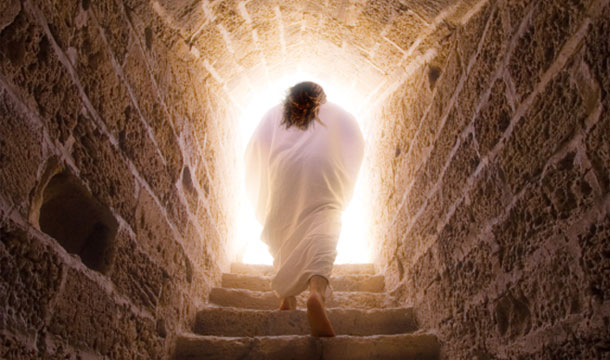
While the secular world puts the chicks and chocolate bunnies and jelly beans on the sale counter to make room on the store counters for the next round of seasonal holidays, the church celebrates Eastertime for 50 days. The first eight days of Eastertime is the octave of Easter and lasts to the Second Sunday of Easter.
The octave of Easter is one continuous celebration. Christians recount the gospel stories of the resurrection and reflect on the sacred mysteries of our immersion in the paschal mystery. In the Catholic Christian tradition, we take a step back in wonder and awe at Easter's implications. We chew on the Word and savor its cud. We ponder the awe of sacred mystery. We embrace and reflect with our beloved neophytes, those newly initiated Christians who we've accompanied through their inquiry, their acceptance, their election, their period of purification and finally their initiation into life as disciples of Jesus Christ. The Catholic Christian tradition calls this particular kind of theological reflection mystagogy, a word derived from Greek words that mean “to lead through the mysteries."
Easter mystagogy allows a faith community to theologically reflect on the period of time that expresses and shapes the life of a baptized people - the paschal season of Lent, Triduum and Eastertime. Whether or not a parish welcomes new members, its mission includes Eastertime mystagogy on the paschal mystery. The community needs to feast for 50 days; is the banquet prepared to welcome all strangers?
Leadership, zeal and a parish's mission direct these days ahead of us. Eastertime requires attention and care, not only by the parish staff but by the entire parish community. If we take the minimalist approach during this miracle of paschal season, chances are that we'll miss the opportunity of a lifetime to intentionally seek those people who came to celebrate Easter Vigil or Easter Sunday Mass with great reluctance, others with hesitancy, some with curiosity, some at the invitation of someone that they love who was initiated into this counter cultural Christian faith life.
How do you welcome tourists? College kids home for Easter break? Seekers? Fallen away Catholics? Undercatechized and uncatechized adults? Baptized and non-baptized children? People of different faith traditions who are curious? They're in our midst. Are we as unaware as the disciples who walked with the risen Jesus on the road to Emmaus and didn't know him? Christ is among us in the stranger in our pews. How well is our banquet prepared throughout these 50 days of Eastertime to draw them in?
Are ministers of hospitality prepared to keep their eyes open for the unfamiliar face and invite them to return? Better yet, is the parish community reminded that the work of liturgy belongs to them? If just one of these people returns for a second helping of Eastertime feasting, what will they find when they return? So much attention is given in industry on excellence in service. Why should we expect less of ourselves as Catholic Christians when our very lives at at stake? Such a question should emerge often among parish staffs, parish councils, leadership teams and certainly in the parish community.
During this Easter octave, consider sending a message out to faithful parishioners, infrequent guests or people you may know who need outreach, Zeal, energy, work and mission are at the heart of Christian discipleship. Who are we to be afraid? Christ is risen. Let's do our share as church to make this God's time, not ours.
Come you all: enter into the joy of your Lord.
You the first and you the last, receive alike your reward;
you rich and you poor, dance together;
you sober and you weaklings, celebrate the day;
you who have kept the fast and you who have not, rejoice today.
The table is richly loaded: enjoy its royal banquet.
All of you enjoy the banquet of faith;
all of you receive the riches of his goodness.
Excerpts from the Easter homily by St. John Chrysostom